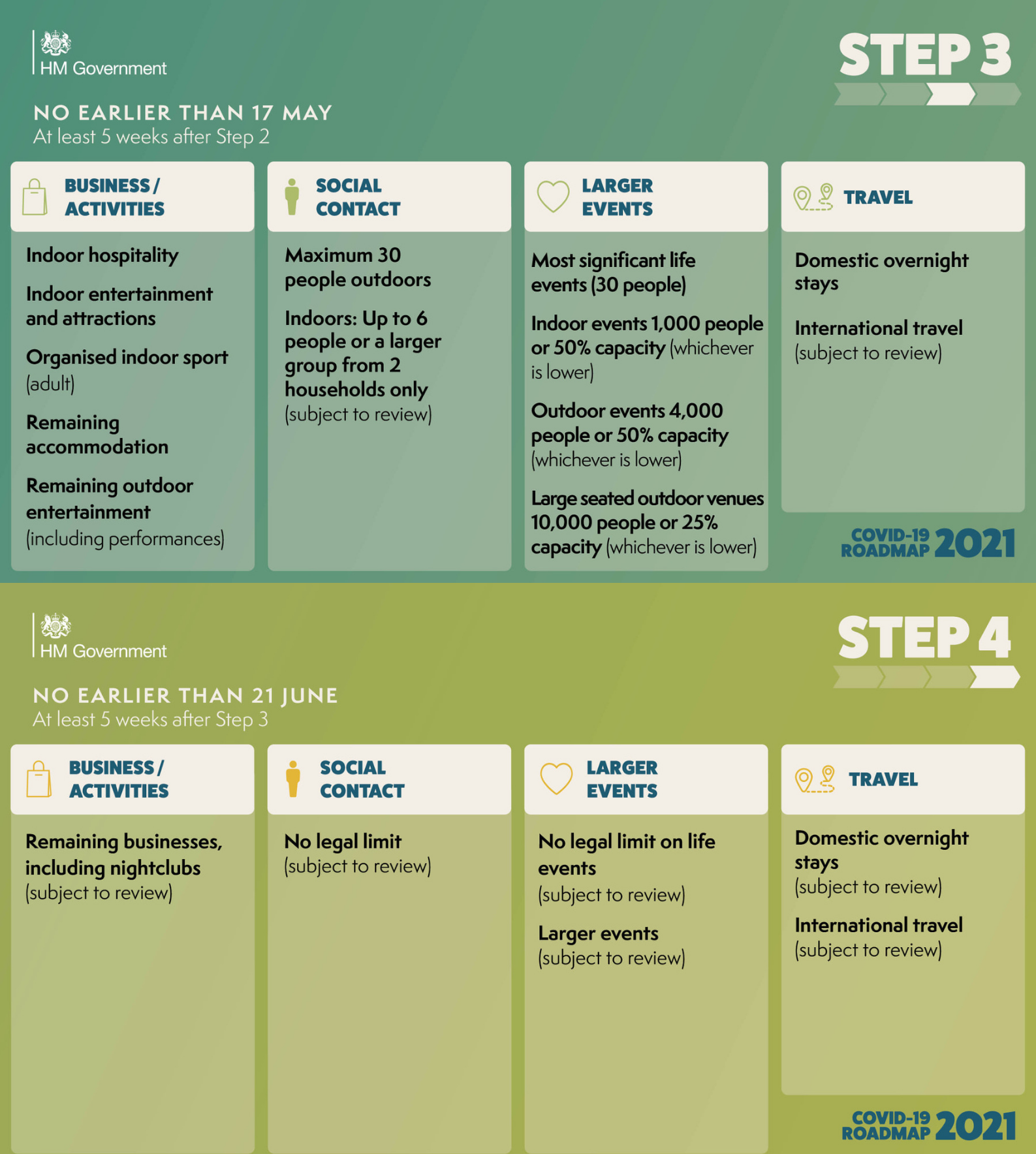
July 19 marks the easing of coronavirus restrictions
Here's what happening on July 19th.
For more information visit the Government Website.
SOCIALISING, WEDDINGS, FUNERALS - All limitations on weddings, wakes and funerals were lifted earlier in June. From July 19 the 1-metre social distancing rule is removed, as well as the "rule of six". Exception to this is the country's border where guidance remains to keep passengers from red and amber list countries from mixing with other travellers. MASS EVENTS including festivals will also go ahead this summer.
PEOPLE WORKING FROM HOME - people can gradually and safely start returning to their workplaces. However, this is not expected to happen completely on July 19.
WEARING FACE MASKS - there is no longer a legal requirement to wear masks, however it is encouraged in places where social distancing is not possible, such as indoors.
SCHOOLS - Schools do not have to form "bubbles" anymore and only the pupil who tests positive has to self-isolate.
FOREIGN TRAVEL - From July 19, UK residents arriving from countries on the Government’s amber list no longer have to quarantine at home for 10 days if they have had both jabs.
BUSINESSES - all remaining businesses, including nightclubs, are able to open. For now, the Government is is “urging” - but not demanding - nightclubs to use Covid-status certification.
VACCINATIONS - Just under 70 per cent of adults in the UK are now estimated to have received both doses of a Covid-19 vaccine as of July 19 - hitting the Government's target early!
The latest data shows that the estimated reduction in symptomatic disease is 60% and hospitalisations 80% for one dose of the Pfizer or AstraZeneca vaccine for people aged 80 and over. Data published by PHE today estimates that for the over 80s, two doses of the Pfizer-BioNTech vaccine reduces the risk of hospitalisation by 93%.
Financial Support
For most up-to-date information, check the Government Website.
The Coronavirus Job Retention Scheme (furlough) has been extended until 30 September 2021 with employees in any part of the UK receiving 80% of their current salary up to £2500 for hours not worked and further economic support announced. Find out about how the scheme changes in July 2021 Here. In addition, the Self-Employed Income Support Scheme will be extended until 30 September 2021. You may be eligible if you submitted a tax return for the 2019 to 2020 tax year.
If you are on furlough, find information here.
If you are self-employed and getting less or no work, find information here.
If you are employed but cannot work, find information here.
If you are unemployed and lost your job due to coronavirus, find information here.
Employers small or large, charitable or non-profit are eligible and because more businesses will need to close, they will now be asked to pay just National Insurance and Pensions contributions for their staff during the furlough period – making this more generous than support currently on offer. If you are an employer find more information about employer contributions to the CJRS here.
Depending on your national Insurance record you may be able to claim New Style Employment and Support Allowance. If you are ill or have a health condition or a disability that limits your ability to work you may be eligible for ESA. Find more information below.
Testing
You will be able to get a free PCR test to check if you have the coronavirus. You can either order PCR test kit to be sent to your home or book an appointment at a walk-in or drive-through test site.
You can also order a rapid lateral flow test if you have no symptoms or for some reason you are not eligible for a PCR test.
If you are not sure about different types of Covid-19 tests, you can find out which test you should get.
The Government has expanded testing so that any adult over 18 without symptoms can get tested.
- From now, everyone in England in eligible for free rapid Covid-19 tests, twice a week.
- This new expansion of testing, made possible due to rapidly increasing testing capacity, will help protect our most vulnerable, our healthcare staff and keep people safe.

